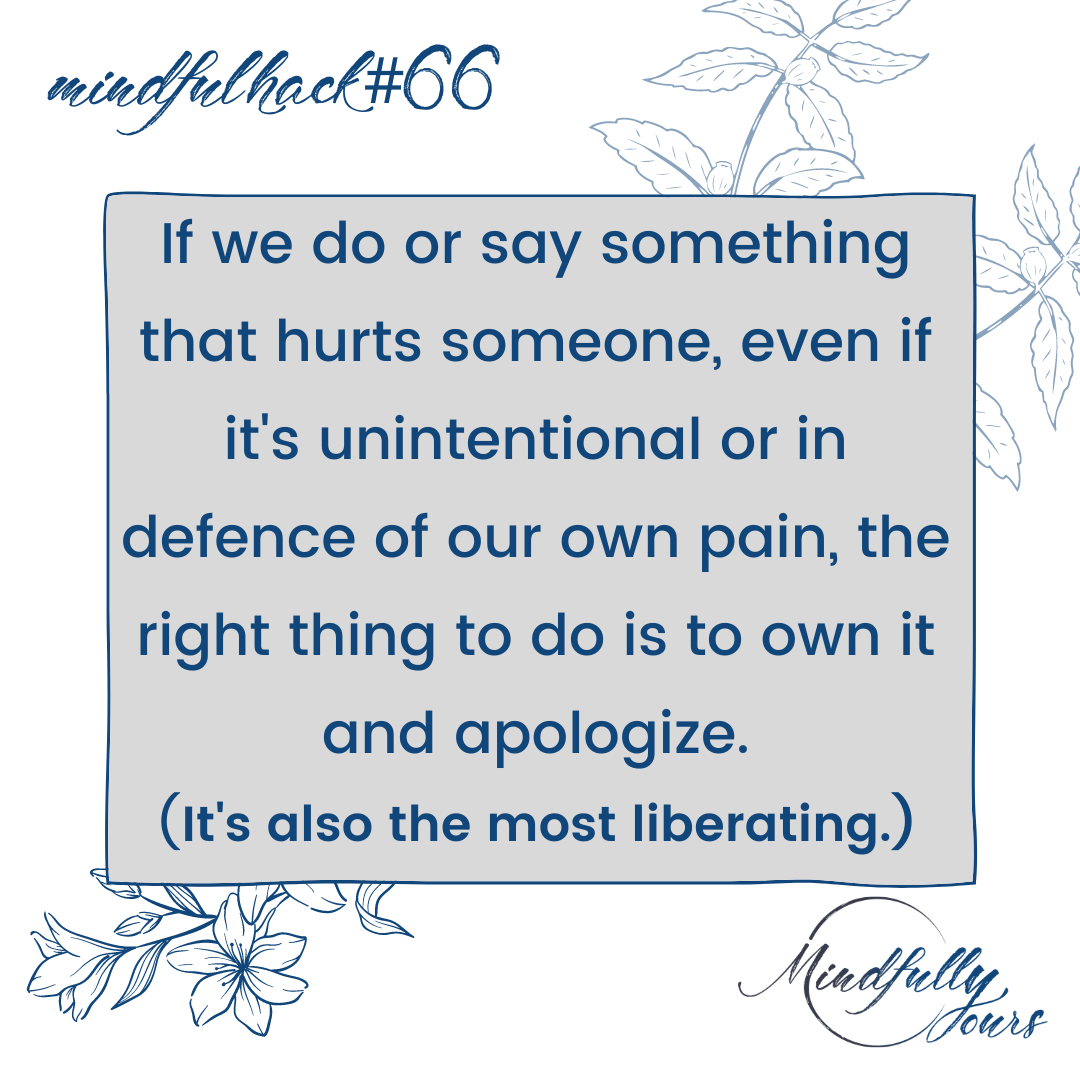I’ve been thinking a lot about something that I learned recently (and I believe I’ve mentioned before), and that’s the gap between intention and impact. I’m struck by how often and in how many ways it seems to show up. Think of the business leader whose intention is to improve efficiency and the impact is loss of employment for those considered “redundant.” Or the child who intends to surprise his or her parents with breakfast in bed and the impact is to create an epic mess, break something or worse yet, start a fire. Yes, those are extreme examples, but they illustrate well how large the gap between intention and impact can be.

Turning this lens to personal relationships can be eye-opening and can go a long way in fostering compassion and understanding for others’ behaviour. It’s rare that anyone is so mean-spirited that their intention is to say or do something to hurt us, so in those instances it would be helpful to be “mindful” of the gap. Getting curious about the reason someone did or said something that we perceived as hurtful could not only teach us something about them, but also give us insight into the way we, ourselves, are perceived by others. “Constructive criticism,” be it from an employer or a loved one, is a great example of this.
There’s much we can do to bring mindfulness to this gap. We can acknowledge that we, too, sometimes have a completely different impact on someone than what we intended. And further, when we see we’ve created an impact we didn’t intend, we can own our part in creating it and work to right it. Again, I have to believe that none of us is so mean-spirited that we would deliberately hurt someone else, but sometimes that’s what happens.
If we do or say something that hurts someone, even if it’s unintentional or in defence of our own pain, the right thing to do is to own it and apologize. (It’s also the most liberating).

